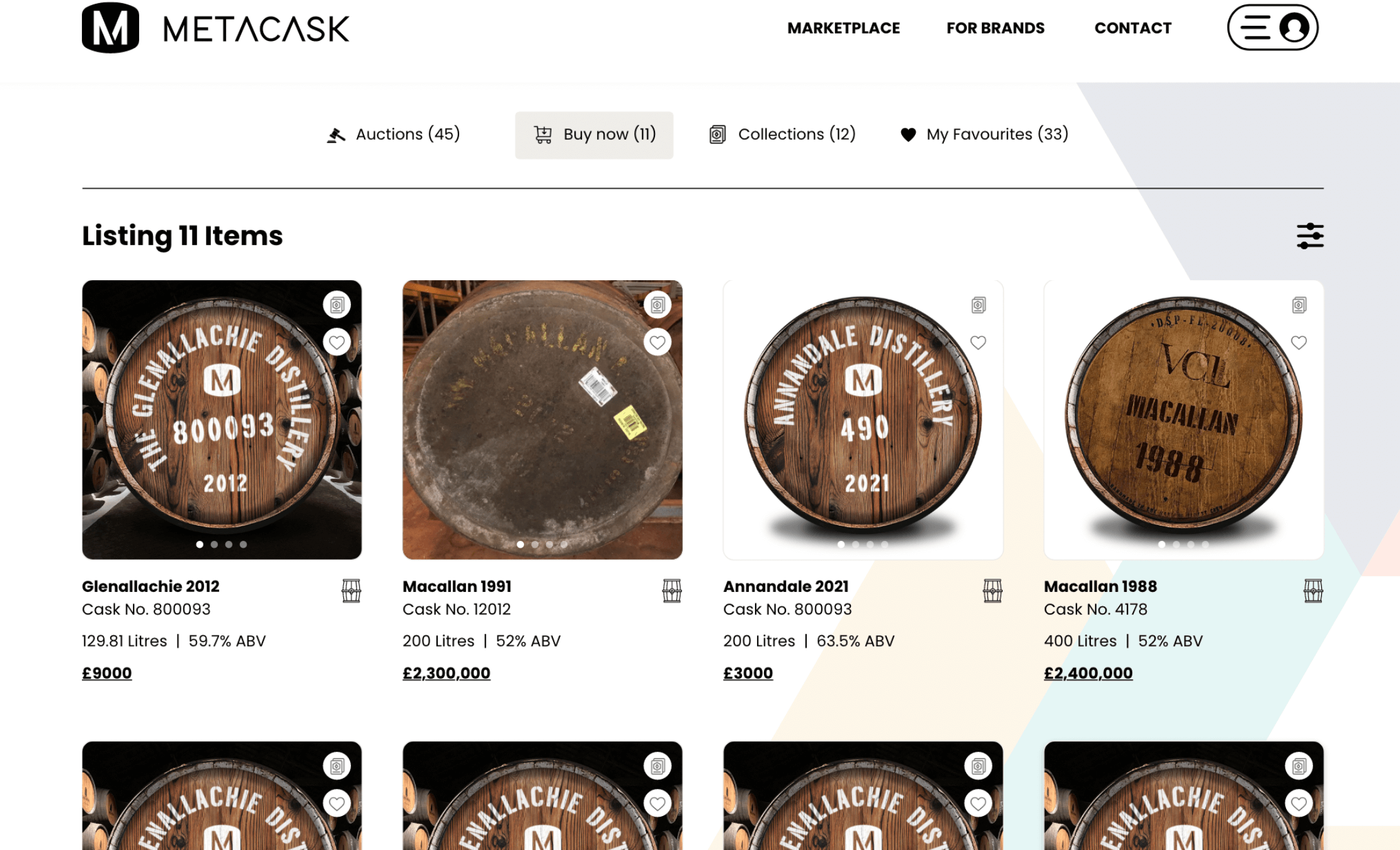How NFTs Are Changing the Spirits Industry for the Better
Nimantha Siriwardana, Co-Founder and CTO of Metacask photo courtesy Metacask
In the eyes of its critics and those who are only aware of it thanks to pictures of apes and punks on Twitter, the NFT industry feels totally ephemeral and somewhat frivolous, lacking any real utility for real people or businesses. The recent downfall of the NFT art space and a number of highly publicized cash grabs and scams has had a chilling effect on the technology and ended up overshadowing how the technology works and the benefits it can provide.
That can (and should) change as the NFT space matures. NFTs are already bigger than simply representing ownership of a unique digital asset, and the industry must communicate that clearly as it moves forward. Utility needs to lead the messaging, and this utility is already manifesting across industries – particularly the luxury spirits industry. NFTs can guarantee authenticity and traceability, which could help solve some of the luxury spirits industry’s biggest safety and fraud issues.
Spirits-backed NFTs correspond to ownership of real-world assets, specifically bottles and casks. This means the NFT has real value in the underlying asset, and that the NFT acts as the digital deed of the product, thus confirming your right to the bottle or cask – the opposite of a quick flip of an investment. By storing that information on a digital ledger, producers and brands save time, streamline trading, open up opportunities for undervalued boutique brands, and provide public records efficiently. That’s genuine value and utility.
Solving malt-iple problems
Despite the squeeze on incomes with inflation and global price increases, the luxury spirits market is expected to reach $123.4 billion by the end of 2027. Premiumization has been a key propeller of this growth as consumers, especially millennials and Gen Z gravitate towards high-end premium liquor. These generations approach party culture and social drinking differently than previous generations, and they’re willing to pay for prestige, high-quality flavor profiles, and high alcohol content minus the high calories. They’re also digital natives who don’t blink twice at tech integration, and they expect a streamlined online experience. This sets the stage for NFT and blockchain integration within the spirits industry.
Even so, the spirits industry isn’t an obvious choice for NFT and blockchain integration. It’s steeped in tradition, dominated by established brands, and reliant on centuries-old practices that still require drawn-out purchase, buying, and selling times. When selling a whisky cask, the process involves a manual paper system of sending delivery orders between the buyer, the seller, and the facility (usually a bonded warehouse) that holds the asset. It’s a process that can take weeks to complete and exposes consumers to clerical errors and misplaced assets.
Like many luxury products, the high-end spirits industry is subject to counterfeiting. The industry loses roughly 1.3 billion euros in revenue every year due to fake wine and spirits in the European Union (EU) market alone. Anti-counterfeit measures such as code number verification hasn’t stopped counterfeiters capable of producing plausible replicas with reused bottles and identical cap seals. Spotting the copycats isn’t easy.
That’s a problem since spirits collectors value authenticity and transparency across a distillery's ingredients and recipe, distilling location, aging, and bottling process. High-end spirits are an investment that encompasses the actual cask, storage, insurance, and shipping fees for a liter of pure alcohol (LPA).
Counterfeits or missing information is a primary driver of a lack of price transparency for collectors and harming the industry as a result. NFTs can fix this.
Aging spirits meets the new tech on the block
Blockchain solutions have now matured for the spirits industry to use this technology to modernize outdated processes, enabling a new era of transparency, provenance, and product authenticity. Using NFTs as a digital deed to prove ownership of a cask trumps existing inefficient, time-intensive record-keeping systems for operational efficiency. Customers have beneficial ownership of their allocated assets, and sellers can transfer ownership of both their digital deeds and the physical product almost instantly on spirits-backed NFT marketplaces. These marketplaces offer an automated and streamlined verification process that will transform the process.
By linking these casks and bottles to NFTs, with all data written as an immutable record on the blockchain, buyers can easily prove the legitimacy and authenticity of the spirit. Imagine uniquely marked bottles and casks connected by QR codes or NFCs that buyers can scan to access unrivaled detail about their bottle or cask. All information is linked to a digital database of time-stamped records or transactions, giving buyers the ability to prove the provenance and integrity of the supply chain.
NFTs and supply chains are a perfect cocktail
The first brands to adopt these will likely be smaller, boutique distilleries. They will lead innovation simply because it’s easier for them to implement new technology and processes. Established brands and distillers are bound to follow suit. NFTs bring a whole new level of authenticity, provenance, and transparency to the luxury spirits industry that goes beyond improving the ownership process and proving authenticity. Introducing NFTs into the production process to record source ingredients, materials, processes, and energy usage streamlines reporting procedures, ensures in-depth product knowledge and offers a verified, less siloed solution to inventory management. Using NFTs to improve accessibility for younger and older generations and appeal to NFT and whisky lovers is how this decades-old industry will remain resilient. This is only the beginning.



